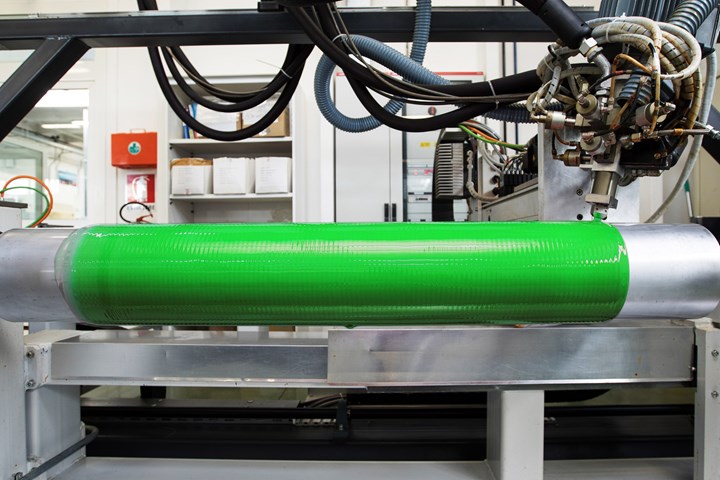Lanxess launches bio-based prepolymer line Adiprene Green
The bio-based prepolymer line are easy to handle and enable a suitable replacement for existing fossil-based polyether prepolymers.
Share

Source | Lanxess
Specialty chemicals company Lanxess (Cologne, Germany) has recently developed a new range of MDI polyether prepolymers containing renewable, bio-based raw materials. Marketed under the brand name Adiprene Green, the products are said to be suitable as replacement for existing fossil-based polyether prepolymers to manufacture highly durable polyurethane (PU) elastomers.
According to Lanxess, the overall objective to develop Adiprene Green was to create a range of bio-based prepolymers which allow the PU processor to produce components with a reduced CO2 footprint, in line with the company’s goal to be climate neutral until 2040. Depending on the system, a reduction of CO2 between 20-30% is possible compared to fossil-based prepolymers due to the use of polyether polyols based on starch. Lanxess says the share of bio-based raw materials varies between 30-90% and is dependent on the targeted system hardness. At the same time, it is said the existing PU processing capabilities remain applicable and the properties of the final polyurethane elastomer are similar to established elastomers based on fossil-based polyether or better.
Accordingly, Adiprene Green prepolymers are easy to handle, and are processed in an identical manner to conventional prepolymers. No modifications to material handling, process temperatures or mixing ratios are necessary. In addition, the reactivity profile and demolding times are similar to fossil-based polyether prepolymers.
Further, when reacted with 1,4-Butanediol, it is said a range of PU elastomers with a hardness from 40 Shore A to 60 Shore D can be achieved. As the PU system is versatile, Adiprene Green can be hand-mixed or machine-mixed. Moreover, the prepolymers can be processed with Vibracat catalysts from Lanxess. Products of the Adiprene Green line are well-suited for demanding applications such as roll covers, wheels, press sleeves or non-pneumatic tires.
Related Content
-
TU Munich develops cuboidal conformable tanks using carbon fiber composites for increased hydrogen storage
Flat tank enabling standard platform for BEV and FCEV uses thermoplastic and thermoset composites, overwrapped skeleton design in pursuit of 25% more H2 storage.
-
Sulapac introduces Sulapac Flow 1.7 to replace PLA, ABS and PP in FDM, FGF
Available as filament and granules for extrusion, new wood composite matches properties yet is compostable, eliminates microplastics and reduces carbon footprint.
-
Natural fiber composites: Growing to fit sustainability needs
Led by global and industry-wide sustainability goals, commercial interest in flax and hemp fiber-reinforced composites grows into higher-performance, higher-volume applications.
